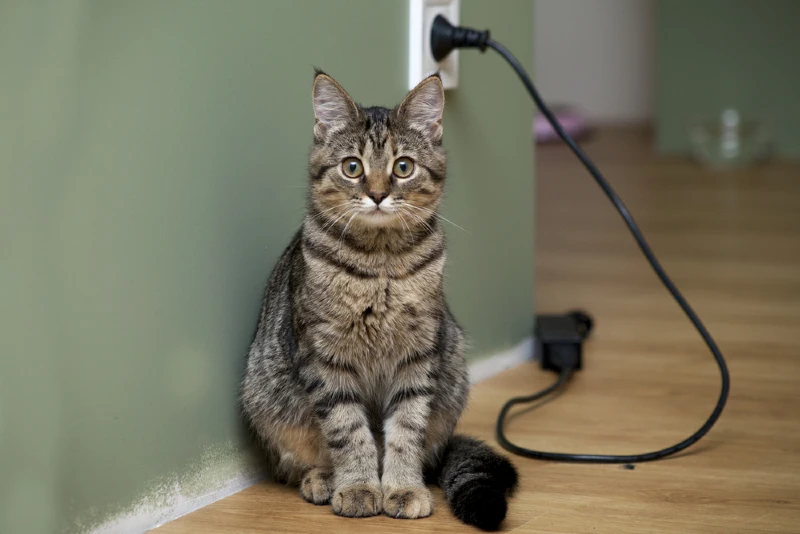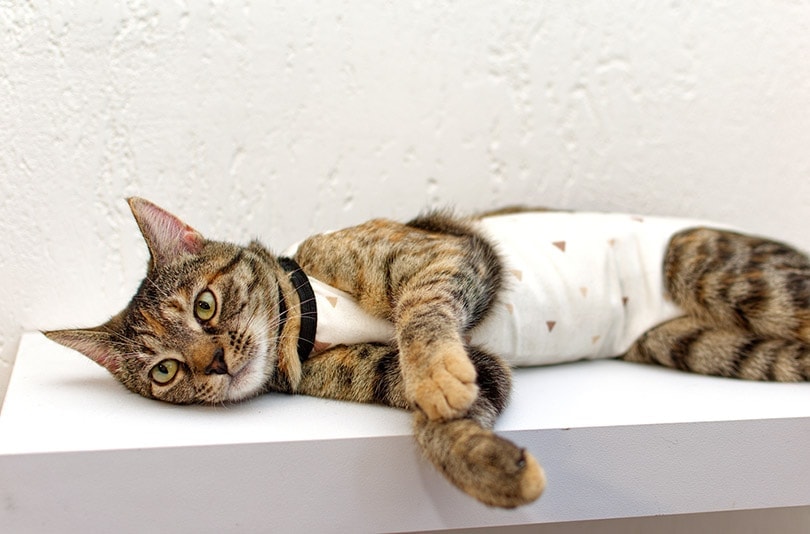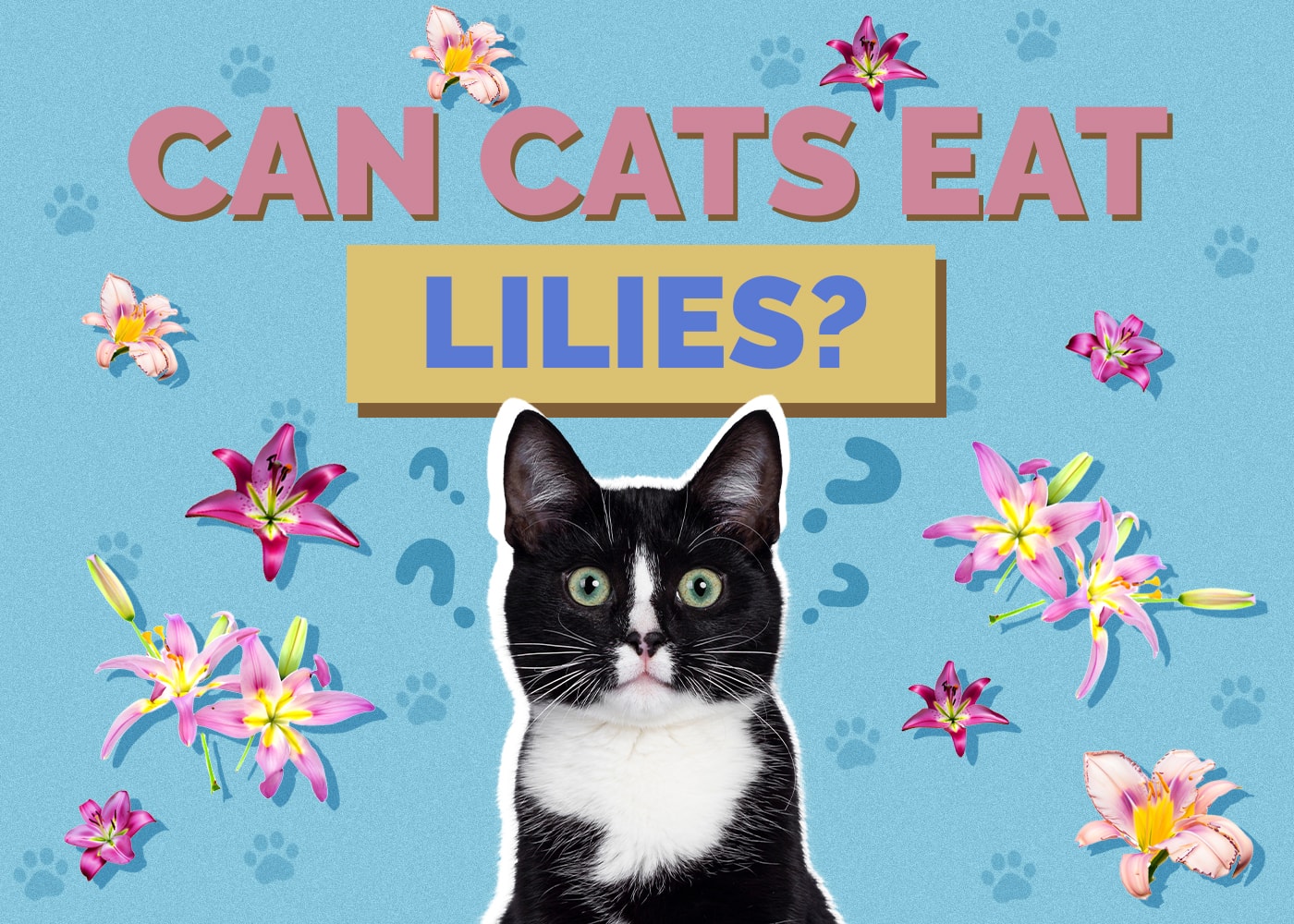Can Cats Eat Grasshoppers? Nutritional Facts & Safety Guide

Updated on
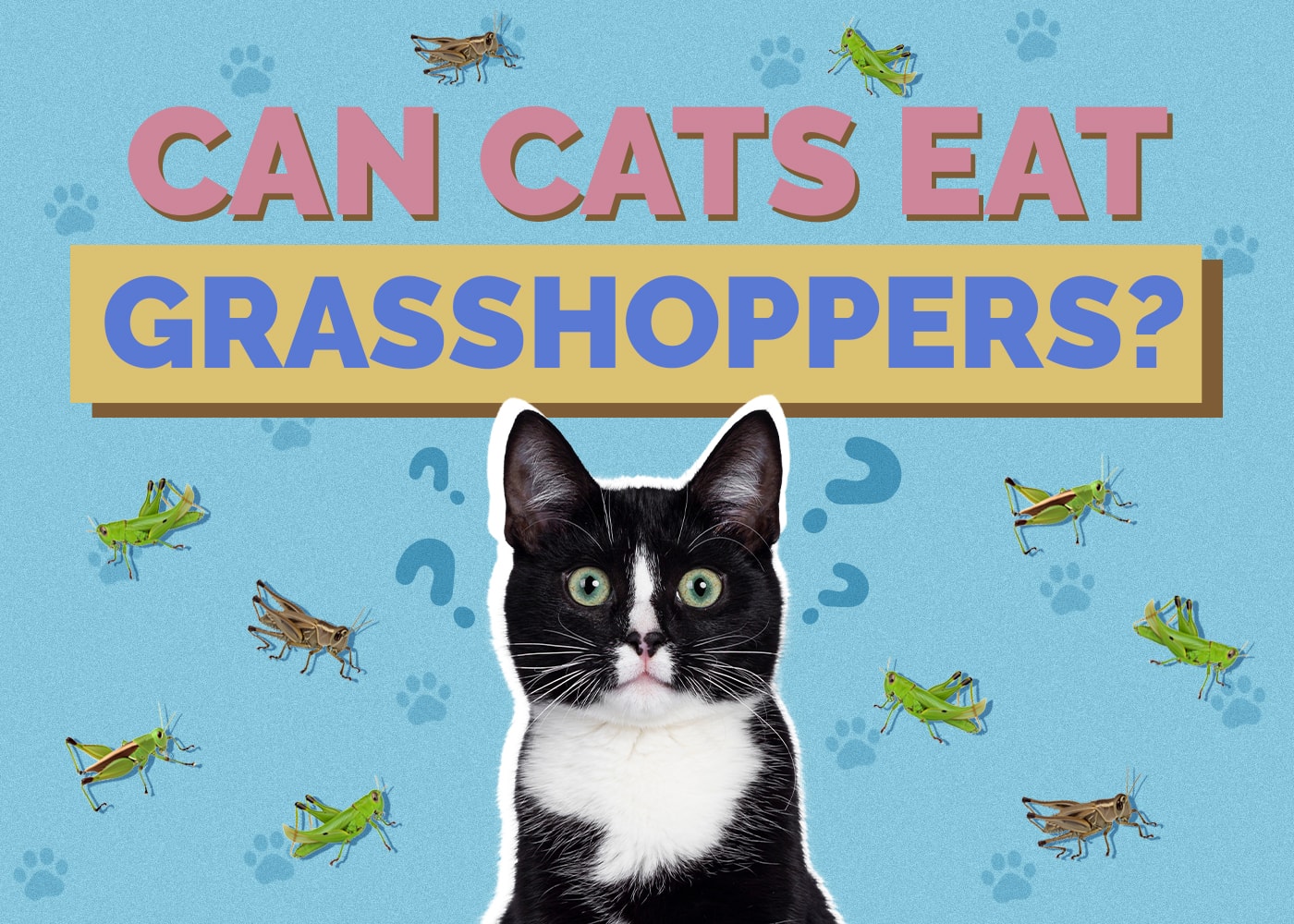
Insects might be creepy to us, but to our cats, they make a challenging hunt and tasty snacks. Grasshoppers, despite their hard exoskeleton, are no exception. While we’d rather steer clear, their fast, darting movements make them eye-catching to our favorite kitties.
While grasshoppers aren’t usually part of our cat’s diet, if you find your feline munching on a freshly caught critter, don’t worry. Grasshoppers don’t pose a health risk to your cat, although their exoskeleton can be difficult for them to digest, particularly if your cat eats many of them.
Witnessing your cat eating a grasshopper or any other bug can be worrying—and more than a little disgusting—so we put together this guide to answer common questions.
Why Do Cats Eat Grasshoppers?
Housebound or intrepid outdoor explorers, cats are hunters at heart. They’ll pounce on unsuspecting toes, their favorite toys, or the fly that’s bouncing off the window. If something catches their hunter’s eye, they’ll go after anything. Contrary to how it may appear if you find your cat eating a grasshopper or any other insect, they don’t go out of their way to hunt them. Despite enjoying the snack once they capture their six-legged prey, insects aren’t a big part of your cat’s diet.
If you’ve spent any amount of time coaxing your cat into a game, you’ll know quick, darting, unpredictable movements work best in capturing their attention. Insects are renowned for all these traits, and the grasshopper hopping around your yard is the perfect target for even a drowsy feline.
These darting movements work so well, that many battery-operated cat toys use the same motions and flashy colors to capture your kitties’ attention. While your cat doesn’t seek out grasshoppers to hunt, they definitely won’t pass up the chance to enjoy their treat when they do catch one. For your cat, chowing down is part of the fun of hunting.
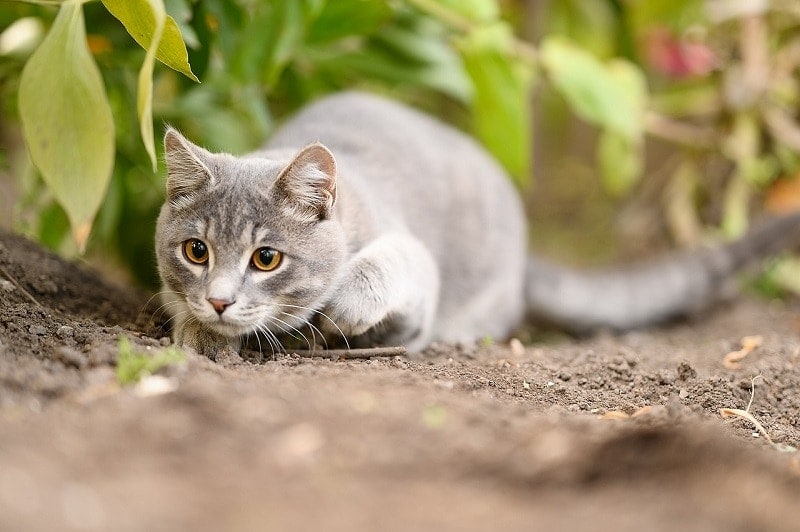
Are Grasshoppers Toxic to Cats?
Grasshoppers might be harmless to your cat, but there are a few common fears when it comes to our cats eating these insects. There are a few ways that grasshoppers can cause discomfort to your cat. Sometimes, despite our cat’s enjoyment of the chase, their prey just doesn’t sit right in their stomach.
Here are a few common issues that can face your cat when they eat a grasshopper:
Exoskeleton
Cats might enjoy the chase but they’re not primarily insect eaters. A grasshopper’s exoskeleton is tough to swallow and digest. One grasshopper might not be an issue unless your cat has a particularly sensitive stomach, but the more they eat, the more likely it is that the hard exoskeleton will start causing abdominal pain.
Insecticides
The biggest concern about your cat eating insects, not just grasshoppers, is the insecticides used to control the population of creepy crawlies. There’s more risk to your cat when they come into direct contact with the pesticide, as there’s usually not much residue on the insect itself. However, this third-hand contact can still cause discomfort for your cat as they digest the insect.
If you use pesticides, whether it’s to keep your vegetable patch safe from critters or to protect your lawn from grasshoppers, check the label. Many chemicals shouldn’t be used around cats or dogs at all, and you should make certain the brand you choose won’t make your pet ill.
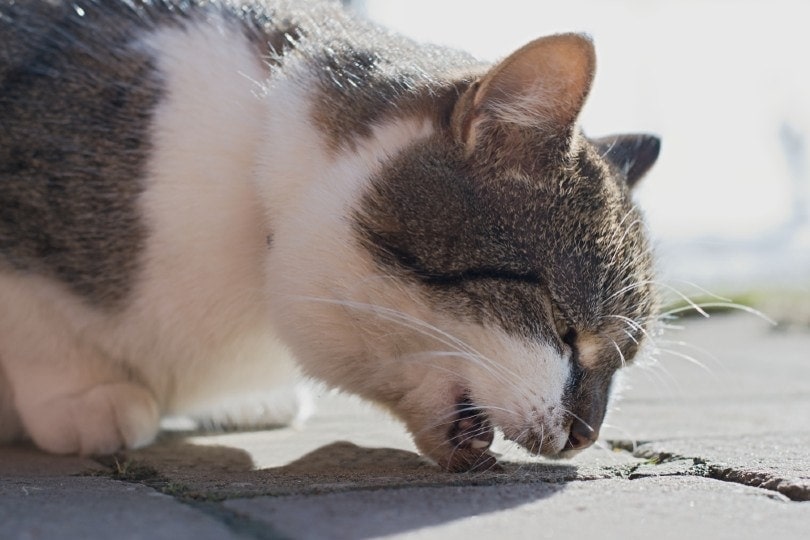
Intestinal Parasites
Despite parasites being a common fear, it isn’t as big an issue as you might think. While grasshoppers can contain parasites, especially worms or tapeworms, they’re not a big threat to your cat. There is a chance that your cat will have a bad reaction to whatever parasites the grasshopper carried, but this will often go away within a few hours or days. If they do have a bad reaction, it’ll likely be vomiting or diarrhea.
In the case of neither symptom disappearing within a few days, visit your veterinarian for a checkup. They’ll be able to make sure your cat is okay.
Stings or Bites
Many insects bite, including certain species of grasshoppers. Usually, your cat will learn their lesson after being stung or bitten and learn to stay away from the insect. But there’s still the bite, or sting, to contend with.
Like humans, cats can suffer from allergic reactions to stings or suffer from the effects of venom from certain bugs. If your cat has a serious reaction to any kind of bug bite or sting, it’s best to take them to your veterinarian.
Now that you know what you can safely feed your cat, it’s just as important to find a bowl that supports their health and well-being. With whisker-friendly bowls and a wide tray to catch any spills, our Hepper NomNom Cat Bowl is our favorite option.
Final Thoughts
In American culture, eating grasshoppers—or any insect at all—leads to a few cringes and disgusted disbelief. More often than not, though, it’s hard to believe that our adorable felines would take such pleasure in munching on any kind of creepy-crawly.
When you do find your outdoor-loving cat chowing down on a grasshopper, don’t panic. They’re not toxic to your cat and your feline won’t be hurt if they eat the grasshoppers that they manage to catch. However, eating too many grasshoppers can cause stomach upset and discomfort, particularly while your cat digests the exoskeleton.
The crunchy snack after a mentally stimulating chase is a nice reward after your cat’s hard work. Also, it means one less grasshopper is devouring your crops or wrecking your garden.
See also:
Featured Image Credit: Mylene2401, Pixabay




